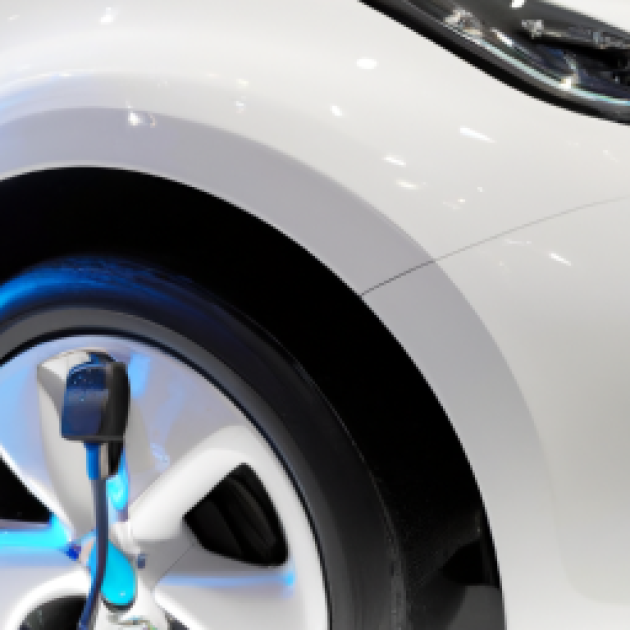Motorcarspecs.com delivers automobile industry news, and its unique content can entice viewers from all over the world. Every day, the Motorcarspecs.com team assists thousands of consumers in conducting vehicle research and comparing pricing on a wide range of automotive products and services. We’ve been pioneering innovative ways for prospective buyers to engage with automobiles and obtain timely and accurate information since January 2020. We created this platform for you, the viewers, to provide an honest evaluation on a relevant automobile, which we will completely review and post on our site.
Electric Vehicles : The Future of Transportation
The Benefits of Electric Vehicles
Electric vehicles or EVs bring immense potential to our future. Not only can they reduce emissions, they are also cheaper to maintain, they offer performance improvementsand they are more efficient than traditional vehicles.
- Reduced Emissions – The transportation sector is responsible for nearly 40% of global emissions, but electric vehicles produce zero emissions, meaning they are better for the environment.
- Lower Maintenance – Electric cars require less maintenance than traditional cars, meaning lower maintenance costs. Additionally, the life cycle cost of an electric vehicle is estimated to be 15% lower than a fossil fuel powered car.
- Performance Improvements – EVs have improved torque and efficiency, meaning faster acceleration and better fuel economy.
- Efficiency – Electric cars are much more efficient than traditional cars, resulting in better fuel economy.
Growing Adoption Rates
EVs are becoming increasingly popular due to their numerous advantages. Governments around the world are offering incentives for the purchase of electric vehicles, resulting in an increase in adoption rates. In some countries, these incentives can translate into thousands of dollars of savings for the purchase of an electric car. Additionally, the rapid development of charging infrastructure is making EVs more accessible, further contributing to their growth.
EVs in a Post-Pandemic World
The COVID-19 pandemic has had a massive impact on the global economy, but some industries have managed to remain relatively unscathed. With the shortage of commercial flights and reduced trucking activities, the demand for personal vehicles has skyrocketed. EVs have emerged as one of the few industries to benefit from the pandemic, with sales of electric vehicles rising significantly in different parts of the world.
The Future of Electric Vehicles
Electric vehicles are the future of transportation and the potential they bring to our world is undeniable. Governments around the world are investing in EVs, incentivizing consumers to make the switch and resulting in a growing number of adopters. And, with the current development in charging infrastructure, the future of electric vehicles is definitely bright.
Q: What impact will electric vehicles have on the environment?
A: Electric vehicles can have a positive impact on the environment by reducing CO2 emissions and improving air quality. They produce less air pollution than conventional vehicles, since they have no tailpipe and no emissions. In addition, the electric motor on an electric vehicle is more efficient than an internal combustion engine, so they use less energy and emit fewer greenhouse gases. Electric vehicles also help reduce noise pollution and help save energy by utilizing renewable energy sources like solar and wind.
Q: How do electric vehicles reduce pollution?
A: Electric vehicles reduce pollution by eliminating emissions from traditional combustion engines. Electric motors produce zero tailpipe emissions and the electricity used to power the vehicle can come from renewable energy sources, meaning that electric vehicles are much less polluting than their gas-powered counterparts. Additionally, electric vehicles are typically more efficient than traditional vehicles, resulting in fewer energy losses, further reducing their environmental impact.
Q: What countries are investing in electric vehicles?
A: Many countries are investing in electric vehicle (EV) infrastructure and adoption, including the United States, China, Germany, Japan, the United Kingdom, France, Norway, India, Australia, South Korea, and Canada. Countries like France, Germany, and Norway are leading the way in EV development with generous incentives for EV purchases and extensive financial funding for research and development. These countries have laid out plans to phase out traditional internal combustion engine vehicles in favor electric and have set ambitious goals to reach their goals.
In recent years, the world has become increasingly concerned about the environment and the development of electric vehicles is seen as a viable solution to mitigating climate change. As the technology for electric vehicles continues to advance, the future of transportation is looking greener.
Electric vehicles are powered by electricity from renewable sources, such as solar and wind power, thus eliminating the need for petrol or diesel. They are also significantly more energy efficient than traditional combustion engine vehicles, as a large majority of the energy generated is used to power the vehicle, instead of wasted as heat and sound. These vehicles produce zero tailpipe emissions, cutting down an immense amount of carbon dioxide from being released into the atmosphere. They also provide a quieter and smoother ride, as they operate with near-silent electric motors.
The global market for electric vehicles is predicted to grow exponentially in the coming years due to increased demand, technological advancement, and wider availability. The number of electric vehicles in operation worldwide is expected to exceed 32 million by 2025, compared to around 5 million in 2020. This growth will be driven in part by investments from major car manufacturers, as well as government incentives and regulations that urge the adoption of electric vehicles.
In addition, the cost of electric vehicles is slowly becoming more competitive with traditional combustion engine vehicles as the technology becomes more affordable and accessible. This is made possible by battery technology advances that are allowing for more cost-effective and longer-lasting batteries, as well as an increased selection of electric vehicles on the market.
A shift to electric vehicles, along with instituting other green initiatives, will be vital to achieving a greener future. As more countries continue to invest in electric vehicle technology and policies, the future of transportation is sure to be more sustainable and efficient.
SlideRule””
What is an analog slide rule?
An analog slide rule is a device that was used in the past to perform mathematical calculations, before modern digital calculation and computer technology made such tools obsolete. It is a mechanical device consisting of numbered scales, fixed and movable, which slide over each other in a specially designed frame. By reading off numbers and aligning certain scales, the user can accomplish quick and accurate calculations of percentages, square roots, logarithms and other mathematical operations.
Although it is no longer widely used, the slide rule still has historical and nostalgic value to those who appreciate its history and simplicity.
It is also still used by some professionals in the sciences and engineering, as well as by hobbyists and collectors.
What is Employee Engagement?
Q: How can employers improve employee engagement?
Employee engagement is an emotional connection employees feel towards their work, workplace and organization. Employers can improve employee engagement by providing meaningful work and opportunities for growth, recognizing employees for their contributions, giving employees a say in how and when work is done, creating a positive and motivational work environment, and offering competitive pay and benefits. Additionally, employers can focus on building relationships with employees, being transparent and authentic with communication, and offering career development and growth opportunities.


